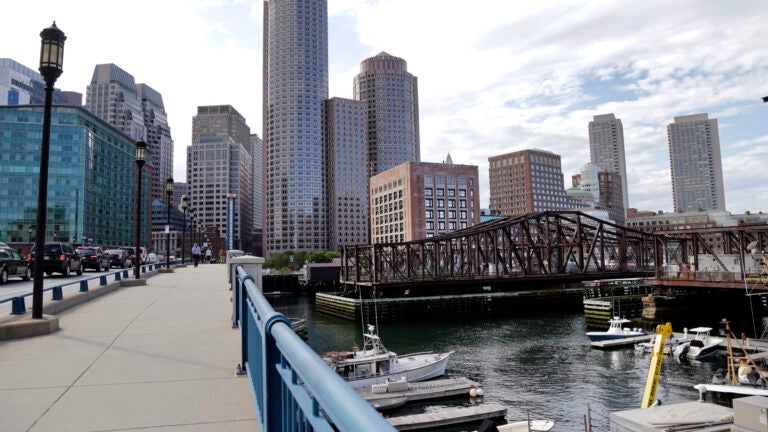I say yes/it already is as Boston and the Bay Area are so much more expensive then other areas for the same reason, both cities are in roughly the same urban form and economic attributes. Although the order of magnitudes are and probably will always be different.
Specifically, they both cities have strong economies deeply connected to high growth industries in the global market, attracting a globally mobile (and highly educated) workforce that in return requires competitive compensation. Both cities are land constrained, containing dense urban cores and robust urban/suburban development circling them. The suburban growth however is reaching its outer functional limit for commuters with current transportation systems while its densification is socially undesirable and is being governed not by regional planning but by empowered communities (often NIMBYs) and their related shatter-belt of municipalities. Both are further land constrained by topography and bodies of water. Thus on the whole they are in the basic form cut from the same cloth.
Though order of magnitude does matter and there are some differences that are keeping Boston more affordable. The first is all of Boston's ex-urban communities that can accommodate growth with minimal impact, aided by what I would argue is a more comprehensive regional transit system. San Francisco's economy while in many ways similar to Boston is certainly a notch or two (or ten) above Boston's which is driving growth more quickly in the Bay Area. And frankly, the Bay Area's climate is more pleasant and I think there are more people willing to put down long term roots there, supporting that sustained demand.
Now the question what can these cities do to start addressing the issue and in my mind its two big buckets (1) create more as-of-right dense/mixed use housing opportunities via a regional approval process and transformation (and strategic) up-zoning* and (2) improve/ expand transportation to locations that can support TOD development.
*This is a total Pandora's box of displacement and design/creation of place etc, etc, and there would have to be controls to manage externalities of up-zoning.
Specifically, they both cities have strong economies deeply connected to high growth industries in the global market, attracting a globally mobile (and highly educated) workforce that in return requires competitive compensation. Both cities are land constrained, containing dense urban cores and robust urban/suburban development circling them. The suburban growth however is reaching its outer functional limit for commuters with current transportation systems while its densification is socially undesirable and is being governed not by regional planning but by empowered communities (often NIMBYs) and their related shatter-belt of municipalities. Both are further land constrained by topography and bodies of water. Thus on the whole they are in the basic form cut from the same cloth.
Though order of magnitude does matter and there are some differences that are keeping Boston more affordable. The first is all of Boston's ex-urban communities that can accommodate growth with minimal impact, aided by what I would argue is a more comprehensive regional transit system. San Francisco's economy while in many ways similar to Boston is certainly a notch or two (or ten) above Boston's which is driving growth more quickly in the Bay Area. And frankly, the Bay Area's climate is more pleasant and I think there are more people willing to put down long term roots there, supporting that sustained demand.
Now the question what can these cities do to start addressing the issue and in my mind its two big buckets (1) create more as-of-right dense/mixed use housing opportunities via a regional approval process and transformation (and strategic) up-zoning* and (2) improve/ expand transportation to locations that can support TOD development.
*This is a total Pandora's box of displacement and design/creation of place etc, etc, and there would have to be controls to manage externalities of up-zoning.



